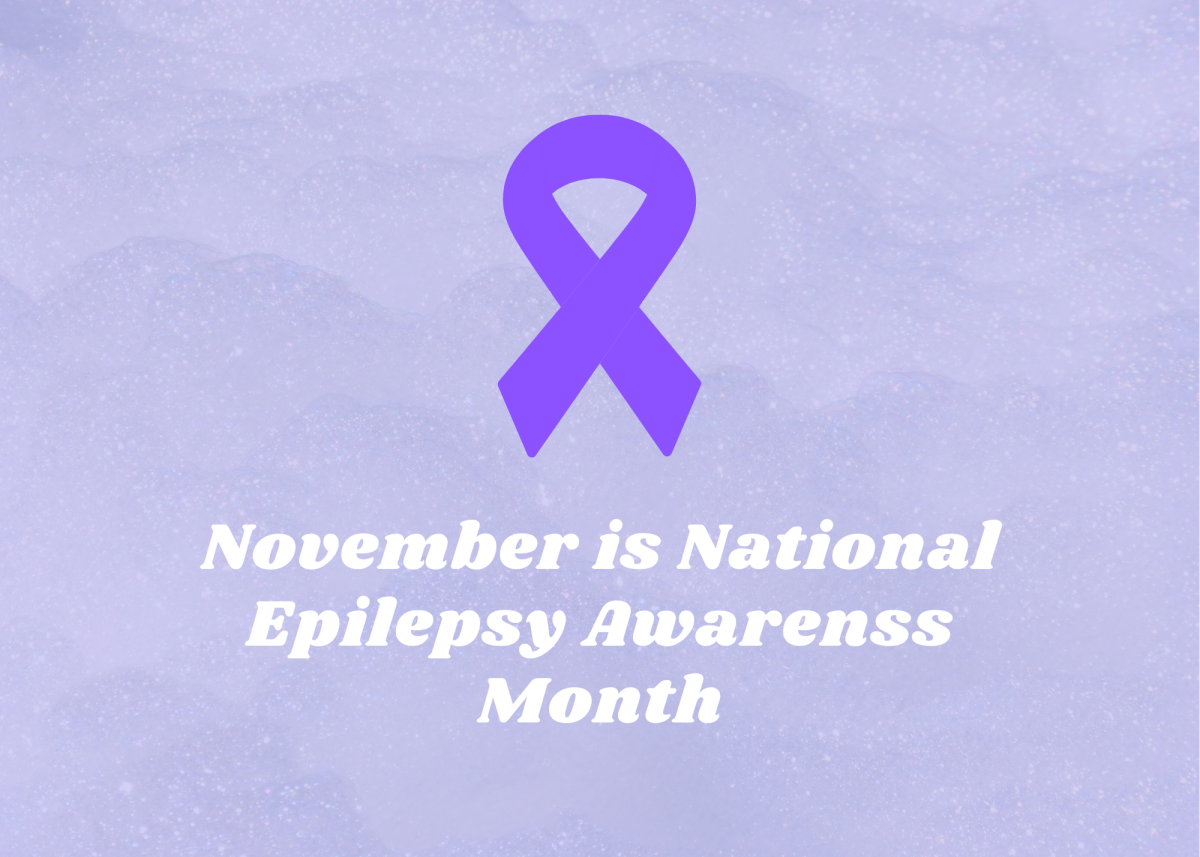McKenzie Leary/The Broadside
According to the Epilepsy Foundation, 3.4 million people are living with epilepsy in the United States alone. Furthermore, 1 in 10 people will have a seizure in their lifetime, and 1 in 26 people will be diagnosed with epilepsy. Despite these shockingly high statistics, epilepsy awareness often goes overlooked and is underrepresented.
Epilepsy is a condition that affects the nervous system and leads to the brain not communicating correctly with nerve cells, otherwise known as causing a seizure. There are many types of seizures. Some seizures are imperceptible (commonly known as absence seizures), and some look like the ones represented in movies. Regardless of the type of seizure, they all can be dangerous. Knowing what to do in the case of you being with someone who has a seizure is crucial. The epilepsy foundation’s slogan is “Stay. Safe. Side.”
- “1. STAY with the person and start timing the seizure. Remain calm and check for medical ID.
- 2. Keep the person SAFE. Move or guide away from harmful objects.
- 3. Turn the person onto their SIDE if they are not awake and aware. Don’t block the airway. Put something small and soft under the head, loosen tight clothes around the neck.
- 4. Do NOT put anything in their mouth. Don’t give water, pills, or food until the person is awake.
- 5. Do NOT restrain.
- 6. STAY with them until they are awake and alert after the seizure. Most seizures end in a few minutes.
When to Call 911
- 1. When seizure lasts longer than 5 minutes
- 2. When there are repeated seizures
- 3. When the person has difficulty breathing
- 4. When the seizure occurs in water.
- 5.When, the person is injured, pregnant, or sick.
- 6. When the Person does not return to their usual state
- 7. When the person has a seizure for the first time.”
The Epilepsy Foundation hosts online seizure certification training for anyone who wants to be a better support to this community.
For COCC students struggling with epilepsy they can get accommodations through disability services. As someone with epilepsy and a need for accommodations, I can tell you that COCC’s disability department and all the staff members have been extremely friendly and flexible when working with me.
To help raise awareness for epilepsy, tell other people about November’s significance, educate yourself, get a certification, donate, and post about it on social media. You do not need to know someone with epilepsy to support the cause and show compassion to individuals struggling with it.
Simply knowing what you can do to assist someone who is having a seizure could allow you to save their life.








